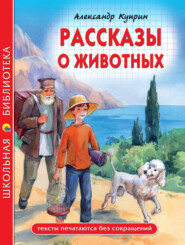По всем вопросам обращайтесь на: info@litportal.ru
(©) 2003-2024.
✖
The Duel
Настройки чтения
Размер шрифта
Высота строк
Поля
“If you ever again speak when I am making a stroke,” he roared, his black eyes glittering, “I’ll throw up the game.”
“Don’t, whatever you do, get excited. It’s so bad for your health. Now it’s my turn.”
Just at that moment in rushed one of the soldiers stationed in the hall for the service of the ladies, and came to attention in front of Romashov.
“Your Honour, the ladies would like you to come into the ballroom.”
Three ladies who had just arrived were already pacing up and down the ballroom. They were none of them exactly young; the eldest of them, the wife of the Club President – Anna Ivanovna Migunov – turned to Romashov and exclaimed in a prim, affected tone, drawling out the words and tossing her head:
“Sub-lieutenant Romashov, please order the band to play something whilst we are waiting.”
“With pleasure, ladies,” replied Romashov with a polite bow. He then went up to the orchestra and called to the conductor, “Zisserman, play us something pretty.”
The first thundering notes of the overture to “Long live the Tsar” rolled through the open windows of the music gallery across the ballroom, and the flames of the candelabra vibrated to the rhythm of the drum beats.
The ladies gradually assembled. A year ago, Romashov had felt an indescribable pleasure in those very minutes before the ball when, in accordance with his duties as director of the ball, he received the ladies as they arrived in the hall. Oh, what mystic witchery those enchantresses possessed when, fired by the strains of the orchestra, by the glare of many lights, and by the thought of the approaching ball, they suffered themselves, in delicious confusion, to be divested of their boas, fur cloaks, wraps, etc. Women’s silvery laughter, high-pitched chatter, mysterious whispers, the freezing perfume from furs covered with hoar-frost, essences, powder, kid gloves, etc. All this commingled constituted the mystic, intoxicating atmosphere that is only found where beautiful women in evening dress crowd one another immediately before entering a ballroom. What a charm in their lovely eyes, beaming with the certainty of victory, that cast a last, swift, scrutinizing glance in the mirror at their hair! What music in the frou-frou of trains and silken skirts! What bliss in the touch of delicate little hands, shawls, and fans!
All this enchantment, Romashov felt, had now ceased for ever. He now understood, and not without a certain sense of shame, that much of this enchantment had owed its origin to the perusal of bad French novels, in which occurred the inevitable description of how “Gustave and Armand cross the vestibule when invited to a ball at the Russian Embassy.” He also knew that the ladies of his regiment wore for years the same evening dress, which, on certain festive occasions, was pathetically remodelled, and that the white gloves very often smelt of benzine. The generally prevailing passion for different sorts of aigrettes, scarves, sham diamonds, feathers, and ribbons of loud and gaudy colours, struck him as being highly ridiculous and pretentious. The same lack of taste and shabby-genteel love of display were shown even in their homes. They “made up” shamelessly, and some faces by this means had acquired a bluish tint; but the most unpleasant part of the affair, in Romashov’s opinion, was what he and others in the regiment, on the day after the ball, discovered as having happened behind the scenes – gossip, flirtations, and big and little scandals. And he also knew how much poverty, envy, love of intrigue, petty provincial pride, and low morality were hidden behind all this splendid misery.
Now Captain Taliman and his wife entered the room. They were both tall and compact. She was a delicate, fragile blonde; he, dark, with the face of a veritable brigand, and affected with a chronic hoarseness and cough. Romashov knew beforehand that Taliman would very soon whisper his usual phrase, and, sure enough, the latter directly afterwards exclaimed, as his gipsy eyes wandered spy-like over the ballroom —
“Have you started cards yet, Lieutenant?”
“No, not yet, they are all together in the dining-room.”
“Ah, really, do you know, Sonochka, I think I’ll go into the dining-room for a minute just to glance at the Russki Invalid. And you, my dear Romashov, kindly look after my wife here for a bit – they are starting the quadrille there.”
After this the Lykatschev family – a whole caravan of pretty, laughing, lisping young ladies, always chattering – made its appearance. At the head walked the mother, a lively little woman, who, despite her forty years, danced every dance, and brought children into the world “between the second and third quadrille,” as Artschakovski, the wit of the regiment, liked to put it.
The young ladies instantly threw themselves on Romashov, laughing and chattering in the attempt to talk one another down.
“Lieutenant Romashov, why do you never come to thee uth?”
“You wicked man!”
“Naughty, naughty, naughty!”
“Wicked man!”
“I will give you the firtht quadwille.”
“Mesdames, mesdames,” said Romashov in self-defence, bowing and scraping in all directions, and forced against his will to do the polite.
At that very moment he happened to look in the direction of the street door. He recognized, silhouetted against the glass, Raisa Alexandrovna’s thin face and thick, prominent lips, which, however, were almost hidden by a white kerchief tied over her hat.
Romashov, like a schoolboy caught in the act, slipped into the reception-room as quick as lightning, but however much he might try to convince himself that he escaped Raisa’s notice, he felt a certain anxiety. In his quondam mistress’s small eyes lay a new expression, hard, menacing, and revengeful, that foreboded a bad time for him.
He walked into the dining-room, where a crowd of officers were assembled. Nearly all the chairs round the long oilcloth-covered table were engaged. The blue tobacco smoke curled slowly along the roof and walls. A rancid smell of fried butter emanated from the kitchen. Two or three groups of officers had already made inroads on the cold collation and schnapps. A few were reading the newspapers. A loud, multitudinous murmur of voices blended with the click of billiard balls, the rattle of knives, and the slamming of the kitchen door. A cold, unpleasant draught from the vestibule caught one’s feet and legs.
Romashov looked for Lieutenant Bobetinski and went to him.
Bobetinski was standing, with his hands in his trousers pockets, quite near the long table. He was rocking backwards and forwards, first on his toes, then on his heels, and his eyes were blinking from the smoke. Romashov gently touched his arm.
“I beg your pardon!” said Bobetinski as he turned round and drew one hand out of his pocket; but he continued peering with his eyes, squinting at Romashov, and screwing his moustache with a superior air and his elbows akimbo. “Ha! it is you? This is very delightful!”
He always assumed an affected, mincing air, and spoke in short, broken sentences, thinking, by so doing, that he imitated the aristocratic Guardsmen and the jeunesse dorée of St. Petersburg. He had a very high opinion of himself, regarded himself as unsurpassed as a dancer and connoisseur of women and horses, and loved to play the part of a blasé man of the world, although he was hardly twenty-four. He always shrugged his shoulders coquettishly high, jabbered horrible French, pattered along the streets with limp, crooked knees and trailing gait, and invariably accompanied his conversation with careless, weary gestures.
“My good Peter Taddeevich,” implored Romashov in a piteous voice, “do, please, conduct the ball to-night instead of me.”
“Mais, mon ami” – Bobetinski shrugged his shoulders, raised his eyebrows, and assumed a stupid expression. “But, my friend,” he translated into Russian, “why so? Pourquoi donc? Really, how shall I say it? You – you astonish me.”
“Well, my dear fellow, please – ”
“Stop! No familiarities, if you please. My dear fellow, indeed!”
“But I beg you, Peter Taddeevich. You see, my head aches, and I have a pain in my throat; it is absolutely impossible for me to – ”
In this way Romashov long and fruitlessly assailed his brother officer. Finally, as a last expedient, he began to deluge him with gross flattery.
“Peter Taddeevich, there is no one in the whole regiment so capable as yourself of conducting a ball with good taste and genius, and, moreover, a lady has specially desired – ”
“A lady!” Bobetinski assumed a blank, melancholy expression. “A lady, did you say? Ah, my friend, at my age – ” he smiled with a studied expression of hopeless resignation. “Besides, what is woman? Ha, ha! an enigma. However, I’ll do what you want me to do.” And in the same doleful tone he added suddenly, “Mon cher ami, do you happen to have – what do you call it – three roubles?”
“Ah, no, alas!” sighed Romashov.
“Well, one rouble, then?”
“But – ”
“Désagréable. The old, old story. At any rate, I suppose we can take a glass of vodka together?”
“Alas, alas! Peter Taddeevich, I have no further credit.”
“Oh! O pauvre enfant! But it does not matter, come along!” Bobetinski waved his hand with an air of magnanimity. “I will treat you.”
Meanwhile, in the dining-room the conversation had become more and more high-pitched and interesting for some of those present. The talk was about certain officers’ duels that had lately taken place, and opinions were evidently much divided.
The speaker at that moment was Artschakovski, a rather obscure individual who was suspected, not without reason, of cheating at cards. There was a story current about him, which was whispered about, to the effect that, before he entered the regiment, when he still belonged to the reserves, he had been head of a posting-station, and was arrested and condemned for killing a post-boy by a blow of his fist.
“Duels may often be necessary among the fools and dandies of the Guards,” exclaimed Artschakovski roughly, “but it is not the same thing with us. Let us assume for an instance that I and Vasili Vasilich Lipski get blind drunk at mess, and that I, who am a bachelor, whilst drunk, box his ears. What will be the result? Well, either he refuses to exchange a couple of bullets with me, and is consequently turned out of the regiment, or he accepts the challenge and gets a bullet in his stomach; but in either case his children will die of starvation. No, all that sort of thing is sheer nonsense.”
“Wait a bit,” interrupted the old toper, Lieutenant-Colonel Liech, as he held his glass with one hand and with the other made several languid motions in the air; “do you understand what the honour of the uniform is? It is the sort of thing, my dear fellow, which – But speaking of duels, I remember an event that happened in 1862 in the Temriukski Regiment.”
“For God’s sake,” exclaimed Artschakovski, interrupting him in turn, “spare us your old stories or tell us something that took place after the reign of King Orre.”
“What cheek! you are only a little boy compared with me. Well, as I was saying – ”
“Only blood can wipe out the stain of an insult,” stammered Bobetinski, who plumed himself on being a cock, and now took part in the conversation in a bragging tone.
“Don’t, whatever you do, get excited. It’s so bad for your health. Now it’s my turn.”
Just at that moment in rushed one of the soldiers stationed in the hall for the service of the ladies, and came to attention in front of Romashov.
“Your Honour, the ladies would like you to come into the ballroom.”
Three ladies who had just arrived were already pacing up and down the ballroom. They were none of them exactly young; the eldest of them, the wife of the Club President – Anna Ivanovna Migunov – turned to Romashov and exclaimed in a prim, affected tone, drawling out the words and tossing her head:
“Sub-lieutenant Romashov, please order the band to play something whilst we are waiting.”
“With pleasure, ladies,” replied Romashov with a polite bow. He then went up to the orchestra and called to the conductor, “Zisserman, play us something pretty.”
The first thundering notes of the overture to “Long live the Tsar” rolled through the open windows of the music gallery across the ballroom, and the flames of the candelabra vibrated to the rhythm of the drum beats.
The ladies gradually assembled. A year ago, Romashov had felt an indescribable pleasure in those very minutes before the ball when, in accordance with his duties as director of the ball, he received the ladies as they arrived in the hall. Oh, what mystic witchery those enchantresses possessed when, fired by the strains of the orchestra, by the glare of many lights, and by the thought of the approaching ball, they suffered themselves, in delicious confusion, to be divested of their boas, fur cloaks, wraps, etc. Women’s silvery laughter, high-pitched chatter, mysterious whispers, the freezing perfume from furs covered with hoar-frost, essences, powder, kid gloves, etc. All this commingled constituted the mystic, intoxicating atmosphere that is only found where beautiful women in evening dress crowd one another immediately before entering a ballroom. What a charm in their lovely eyes, beaming with the certainty of victory, that cast a last, swift, scrutinizing glance in the mirror at their hair! What music in the frou-frou of trains and silken skirts! What bliss in the touch of delicate little hands, shawls, and fans!
All this enchantment, Romashov felt, had now ceased for ever. He now understood, and not without a certain sense of shame, that much of this enchantment had owed its origin to the perusal of bad French novels, in which occurred the inevitable description of how “Gustave and Armand cross the vestibule when invited to a ball at the Russian Embassy.” He also knew that the ladies of his regiment wore for years the same evening dress, which, on certain festive occasions, was pathetically remodelled, and that the white gloves very often smelt of benzine. The generally prevailing passion for different sorts of aigrettes, scarves, sham diamonds, feathers, and ribbons of loud and gaudy colours, struck him as being highly ridiculous and pretentious. The same lack of taste and shabby-genteel love of display were shown even in their homes. They “made up” shamelessly, and some faces by this means had acquired a bluish tint; but the most unpleasant part of the affair, in Romashov’s opinion, was what he and others in the regiment, on the day after the ball, discovered as having happened behind the scenes – gossip, flirtations, and big and little scandals. And he also knew how much poverty, envy, love of intrigue, petty provincial pride, and low morality were hidden behind all this splendid misery.
Now Captain Taliman and his wife entered the room. They were both tall and compact. She was a delicate, fragile blonde; he, dark, with the face of a veritable brigand, and affected with a chronic hoarseness and cough. Romashov knew beforehand that Taliman would very soon whisper his usual phrase, and, sure enough, the latter directly afterwards exclaimed, as his gipsy eyes wandered spy-like over the ballroom —
“Have you started cards yet, Lieutenant?”
“No, not yet, they are all together in the dining-room.”
“Ah, really, do you know, Sonochka, I think I’ll go into the dining-room for a minute just to glance at the Russki Invalid. And you, my dear Romashov, kindly look after my wife here for a bit – they are starting the quadrille there.”
After this the Lykatschev family – a whole caravan of pretty, laughing, lisping young ladies, always chattering – made its appearance. At the head walked the mother, a lively little woman, who, despite her forty years, danced every dance, and brought children into the world “between the second and third quadrille,” as Artschakovski, the wit of the regiment, liked to put it.
The young ladies instantly threw themselves on Romashov, laughing and chattering in the attempt to talk one another down.
“Lieutenant Romashov, why do you never come to thee uth?”
“You wicked man!”
“Naughty, naughty, naughty!”
“Wicked man!”
“I will give you the firtht quadwille.”
“Mesdames, mesdames,” said Romashov in self-defence, bowing and scraping in all directions, and forced against his will to do the polite.
At that very moment he happened to look in the direction of the street door. He recognized, silhouetted against the glass, Raisa Alexandrovna’s thin face and thick, prominent lips, which, however, were almost hidden by a white kerchief tied over her hat.
Romashov, like a schoolboy caught in the act, slipped into the reception-room as quick as lightning, but however much he might try to convince himself that he escaped Raisa’s notice, he felt a certain anxiety. In his quondam mistress’s small eyes lay a new expression, hard, menacing, and revengeful, that foreboded a bad time for him.
He walked into the dining-room, where a crowd of officers were assembled. Nearly all the chairs round the long oilcloth-covered table were engaged. The blue tobacco smoke curled slowly along the roof and walls. A rancid smell of fried butter emanated from the kitchen. Two or three groups of officers had already made inroads on the cold collation and schnapps. A few were reading the newspapers. A loud, multitudinous murmur of voices blended with the click of billiard balls, the rattle of knives, and the slamming of the kitchen door. A cold, unpleasant draught from the vestibule caught one’s feet and legs.
Romashov looked for Lieutenant Bobetinski and went to him.
Bobetinski was standing, with his hands in his trousers pockets, quite near the long table. He was rocking backwards and forwards, first on his toes, then on his heels, and his eyes were blinking from the smoke. Romashov gently touched his arm.
“I beg your pardon!” said Bobetinski as he turned round and drew one hand out of his pocket; but he continued peering with his eyes, squinting at Romashov, and screwing his moustache with a superior air and his elbows akimbo. “Ha! it is you? This is very delightful!”
He always assumed an affected, mincing air, and spoke in short, broken sentences, thinking, by so doing, that he imitated the aristocratic Guardsmen and the jeunesse dorée of St. Petersburg. He had a very high opinion of himself, regarded himself as unsurpassed as a dancer and connoisseur of women and horses, and loved to play the part of a blasé man of the world, although he was hardly twenty-four. He always shrugged his shoulders coquettishly high, jabbered horrible French, pattered along the streets with limp, crooked knees and trailing gait, and invariably accompanied his conversation with careless, weary gestures.
“My good Peter Taddeevich,” implored Romashov in a piteous voice, “do, please, conduct the ball to-night instead of me.”
“Mais, mon ami” – Bobetinski shrugged his shoulders, raised his eyebrows, and assumed a stupid expression. “But, my friend,” he translated into Russian, “why so? Pourquoi donc? Really, how shall I say it? You – you astonish me.”
“Well, my dear fellow, please – ”
“Stop! No familiarities, if you please. My dear fellow, indeed!”
“But I beg you, Peter Taddeevich. You see, my head aches, and I have a pain in my throat; it is absolutely impossible for me to – ”
In this way Romashov long and fruitlessly assailed his brother officer. Finally, as a last expedient, he began to deluge him with gross flattery.
“Peter Taddeevich, there is no one in the whole regiment so capable as yourself of conducting a ball with good taste and genius, and, moreover, a lady has specially desired – ”
“A lady!” Bobetinski assumed a blank, melancholy expression. “A lady, did you say? Ah, my friend, at my age – ” he smiled with a studied expression of hopeless resignation. “Besides, what is woman? Ha, ha! an enigma. However, I’ll do what you want me to do.” And in the same doleful tone he added suddenly, “Mon cher ami, do you happen to have – what do you call it – three roubles?”
“Ah, no, alas!” sighed Romashov.
“Well, one rouble, then?”
“But – ”
“Désagréable. The old, old story. At any rate, I suppose we can take a glass of vodka together?”
“Alas, alas! Peter Taddeevich, I have no further credit.”
“Oh! O pauvre enfant! But it does not matter, come along!” Bobetinski waved his hand with an air of magnanimity. “I will treat you.”
Meanwhile, in the dining-room the conversation had become more and more high-pitched and interesting for some of those present. The talk was about certain officers’ duels that had lately taken place, and opinions were evidently much divided.
The speaker at that moment was Artschakovski, a rather obscure individual who was suspected, not without reason, of cheating at cards. There was a story current about him, which was whispered about, to the effect that, before he entered the regiment, when he still belonged to the reserves, he had been head of a posting-station, and was arrested and condemned for killing a post-boy by a blow of his fist.
“Duels may often be necessary among the fools and dandies of the Guards,” exclaimed Artschakovski roughly, “but it is not the same thing with us. Let us assume for an instance that I and Vasili Vasilich Lipski get blind drunk at mess, and that I, who am a bachelor, whilst drunk, box his ears. What will be the result? Well, either he refuses to exchange a couple of bullets with me, and is consequently turned out of the regiment, or he accepts the challenge and gets a bullet in his stomach; but in either case his children will die of starvation. No, all that sort of thing is sheer nonsense.”
“Wait a bit,” interrupted the old toper, Lieutenant-Colonel Liech, as he held his glass with one hand and with the other made several languid motions in the air; “do you understand what the honour of the uniform is? It is the sort of thing, my dear fellow, which – But speaking of duels, I remember an event that happened in 1862 in the Temriukski Regiment.”
“For God’s sake,” exclaimed Artschakovski, interrupting him in turn, “spare us your old stories or tell us something that took place after the reign of King Orre.”
“What cheek! you are only a little boy compared with me. Well, as I was saying – ”
“Only blood can wipe out the stain of an insult,” stammered Bobetinski, who plumed himself on being a cock, and now took part in the conversation in a bragging tone.

















